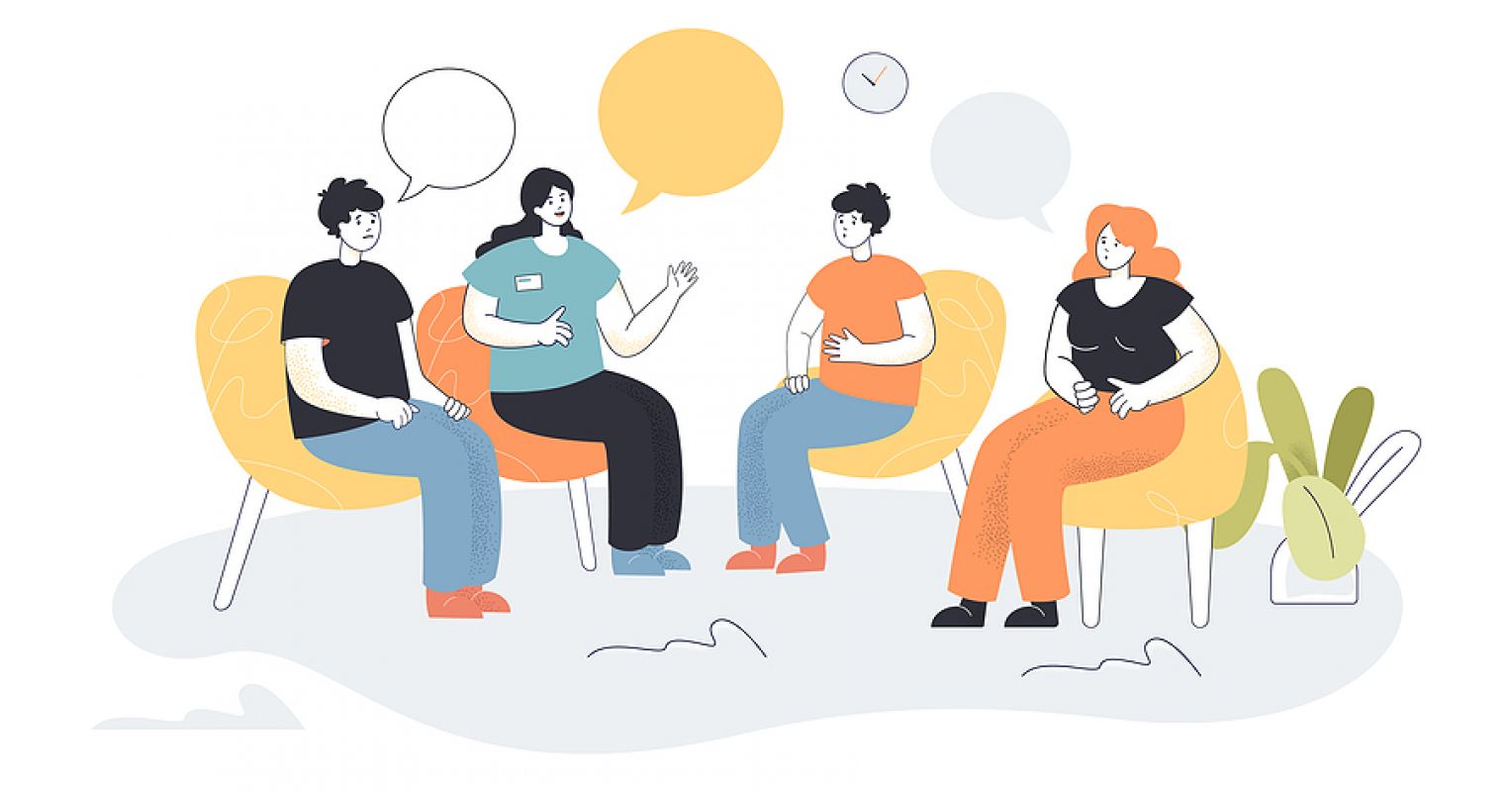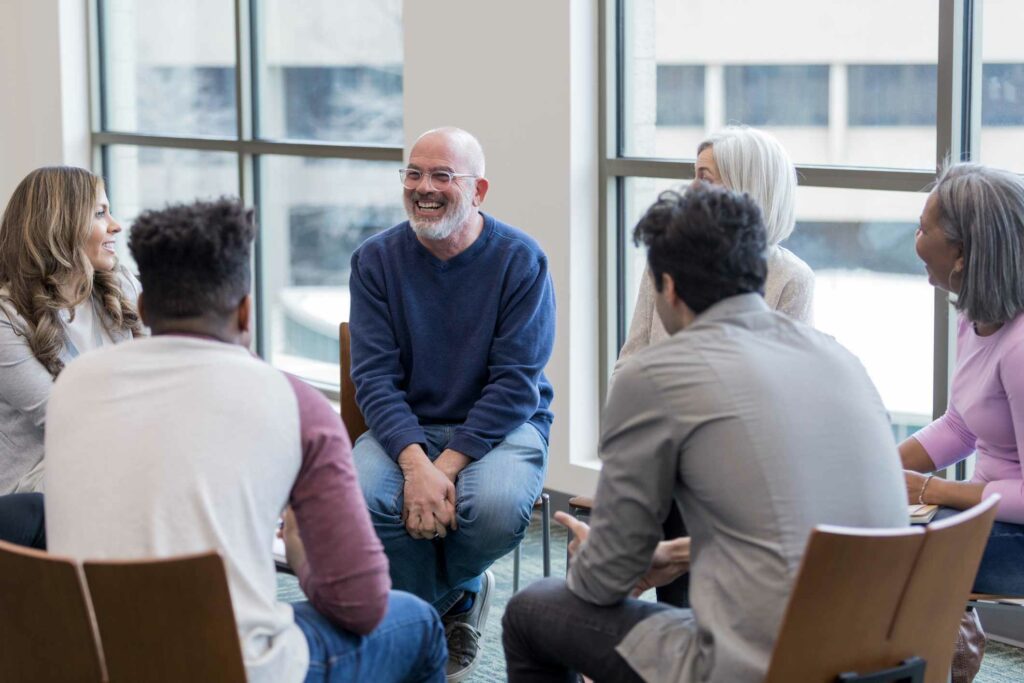Depression affects millions of people worldwide and can feel isolating, overwhelming, and even debilitating. It can be tough to find the right support system when you’re feeling low, but group therapy for depression is an option that many people have found helpful. In this blog post, we’ll explore what group therapy is all about and how it could be just the thing you need to start feeling better!
Contents
What is Group Therapy?

Group therapy is a form of psychological treatment that involves bringing together a small group of people to share their experiences and feelings. Also, Group therapy aims to help people understand and cope with their problems and to develop healthier ways of relating to others.
Group therapy can be an effective treatment for depression, as it can provide support, understanding, and encouragement from others who are going through similar experiences.
How Does Group Therapy Work?
The working of group therapy seems daunting at first, but the process is fairly straightforward. Group therapy involves a therapist and several patients who meet together in a therapeutic setting to discuss their problems and gain support from one another.
The therapist will act as a facilitator, listening to individual concerns and helping the group work through them. Together, they’ll explore underlying issues that may be contributing to their mental illness, such as fear, guilt, and low self-esteem. They’ll also learn coping skills and ways to better manage stress and anxiety. The therapist will encourage members of the group to provide feedback and support to each other to foster a sense of understanding among them.
Approximately, there are two types of group therapy: open and closed. Open groups are available to everyone, while closed groups only allow those who have been referred by a mental health professional.
Techniques of Group Therapy
 a
a
These are some of the techniques used in group therapy for depression:
Icebreaker Activities
One of the first steps in group therapy is usually icebreaker activities. This help to foster an atmosphere of trust, connection, and empathy between the members of the group. Activities such as a round-robin introduction, an activity that requires members of the group to share something about themselves, can help create a space for open communication.
Sharing Activities
Some group therapy sessions will focus on having members of the group share their experiences dealing with depression. Other activities involve talking about ways to cope with difficult emotions or how recognizing signs of depression in oneself and others. These activities help the members of the group understand each other’s struggles, learn from one another, and provide support in overcoming issues related to depression.
Gratitude Activities
Some sessions focus on cultivating gratitude. This could involve activities such as writing down things each person is grateful for or going around the room and having members of the group share one thing they are thankful for. These activities can help shift one’s perspective and reframe their experiences in a more positive light.
Cognitive Reframing Activities
Some sessions also use cognitive reframing activities. This involves helping members of the group to recognize and challenge negative thoughts or beliefs they may have about themselves. Through this process, members can learn to examine their thoughts from a different perspective and cultivate more helpful and empowering attitudes toward themselves.
Activity Planning
Another component of therapy is activity planning. This might involve creating an action plan to help members of the group increase their sense of purpose, connection, and engagement in life. This could include planning activities that give participants a sense of accomplishment or connecting them with helpful resources such as support groups or therapy services.
What are the Benefits of Group Therapy?
Group therapy can provide several benefits for people suffering from depression. Some of these benefits are:
- Working with others who share similar life experiences and understanding how they cope with their illness.
- Learning healthier ways to deal with difficult emotions, such as anger and sadness.
- Developing an increased sense of self-awareness and understanding triggers that can lead to depressive episodes.
- Improving communication skills and interpersonal relationships.
- Increasing feelings of self-esteem and empowerment.
- Helping to identify unhealthy thought patterns or behaviors that can lead to depression.
Who Can Participate in Group Therapy?
If you are experiencing depression, you may be wondering if group therapy is right for you. The short answer is that anyone who is struggling with depression can benefit from attending group therapy sessions.
Group therapy provides a supportive environment where you can share your experiences and feelings with others who are going through similar challenges. In group therapy, you will have the opportunity to learn new coping and problem-solving skills, as well as gain insights into your thoughts and behaviors.
People who suffer from any type of mental health disorder, such as depression or bipolar disorder, can benefit from group therapy. In addition to providing support and encouragement, group therapy can also be a helpful tool in managing the symptoms of mental illness. Group participants often find that sharing their experiences with others who understand what they are going through can help them feel less alone.
What Happens During Group Therapy Sessions?

Group therapy sessions are designed to help people with depression share their experiences and feelings with others who are going through similar issues. The therapist leading the group will create an environment that is safe and supportive, where everyone is encouraged to express themselves openly and honestly. Group members will also be given opportunities to listen to and learn from each other.
During group therapy sessions, participants will typically discuss topics related to their depression, such as how it affects their daily lives, what triggers their symptoms, and how they cope with negative thoughts and emotions. These discussions can help people to better understand their condition and feel less alone in their struggles. Additionally, group members can offer each other practical advice and support for dealing with difficult situations.
Ultimately, the goal of group therapy for depression is to provide people with a space to heal, grow, and develop positive coping skills. With the help of a therapist and fellow group members, individuals can begin to develop a more positive outlook on life and start working towards recovery.
How to Find a Group Therapy Session?

If you’re struggling with depression, you might be considering group therapy as a way to get help. But how do you find a group therapy session that’s right for you?
There are a few different ways to find a group therapy session.
- You can ask your doctor or therapist for a recommendation, look for a session online or in your local community, or even start your group.
- Once you’ve found a few potential sessions, take some time to research them. Find out what type of therapy they use, how long the sessions are, and what the group size is. You should also make sure that the group is led by a qualified therapist.
- Try attending a few sessions to get a better idea of how the group works and whether it will be a good fit for you. It can also be helpful to talk to the therapist leading the group, as they can answer any questions you have and help you decide if the group is right for you.
- Make sure you feel comfortable and accepted in the group before committing to it. Your mental health is too important to settle for anything less than a supportive, welcoming environment. It can also be helpful to talk to other group members to get a sense of whether or not the group will be a good fit for you.
Conclusion
Group therapy is an extremely beneficial form of treatment for depression. It provides a safe, supportive environment in which to discuss issues and work together with others who are also suffering from the same condition.
By connecting with other people, attending group therapy can help individuals build resilience and gain new insights into how they can better manage their symptoms. It may be difficult to take that first step into a support group but it could ultimately be life-changing.
For more information, please contact MantraCare. Depression is a mental illness characterized by persistent feelings of sadness, hopelessness, and loss of interest in daily activities. If you have any queries regarding Online Depression Counseling experienced therapists at MantraCare can help: Book a trial Depression Therapy session


